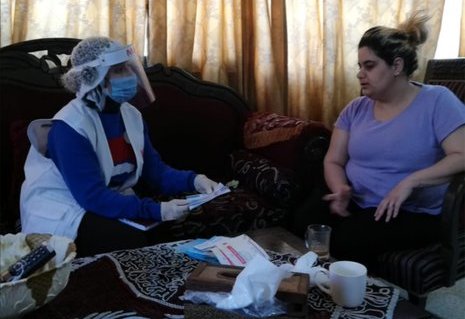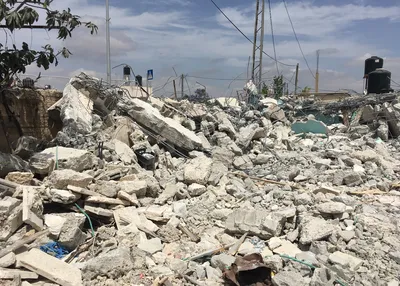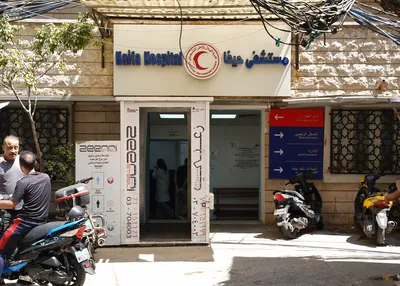How MAP is helping to bring family medicine to Palestine

Life under Israel’s occupation also exposes Palestinians to additional threats to their mental wellbeing. This includes exposure to regular and often deadly violence, restrictions on free movement, harassment by Israeli settlers, regular contact with a foreign occupying military force and demolitions of homes and livelihoods. According to UN agency OCHA, settler violence has continued to increase in 2019, with a weekly average of seven attacks against Palestinians in the West Bank resulting in injuries or damage to property, compared with five in 2018 and three in 2017.
Developing the speciality of ‘family medicine’ can be key to addressing these challenges.
In countries like the UK, when someone has a health problem, they will usually first visit their GP, who can, if necessary, refer them on to specialists for tests or treatment. This is part of the ‘family medicine’ model, a patient-centred approach to providing continuous and holistic approach to care across the lifetime of a patient and to all members of a family.
MAP is helping to adapt the family medicine model of healthcare for the Palestinian health system. Among the many benefits of this model is its ability to improve the management and care of chronic diseases and the health challenges that ageing populations face. Developing this specialism in Palestine is also important to ensuring all people have access to high-quality primary care which is equitable, efficient and affordable.
With our partners, the Foundation for International Development of Family Medicine in Palestine (FIDFMP), and with the support of the Palestinian Ministry of Health, MAP is helping to increase the number and quality of family medicine specialists in the West Bank. Together, we are supporting An Najah National University (ANNU) in Nablus, northern West Bank, to teach Palestinian GPs the key skills needed for applying the family medicine model in their work.
One strand of this is a residency training programme to teach Palestinian doctors the speciality of family medicine, hosted at ANNU. Through this programme, Palestinians doctors work and train in new family medicine training centres, the first of their kind in the West Bank, developing core competencies against a curriculum that MAP, FIDFMP and ANNU have helped restructure to meet international standards.
At the end of 2018, we received excellent news. All family medicine residents passed the first part of their specialist exams, sat half way through the residency programme.
Dr Andy Ferguson, MAP’s UK Director of Programmes, reflected that “this a fantastic and almost unprecedented achievement!”
To help improve the knowledge and skills amongst all members of the family healthcare teams, MAP has also supported the development of a learning management system and integrated online classroom. This offers unique opportunities to deliver the training programme and is particularly important in areas where there are restrictions on freedom of movement for Palestinians. It includes online casebased clinical tutorials and an online mentorship programme for key individuals and groups of health professionals. The required bandwidth is deliberately light to enable it to function in Palestine with limited internet connectivity, and to enable participants to use it on their mobile phones.
With ongoing support, MAP will continue to work towards firmly placing family medicine as an integral part of the Palestinian healthcare system, with the potential to address many of the country’s health needs now and in years to come.
“Family medicine makes me a better doctor!”
Dr Tasneem Yahya, a GP from Tulkarem is involved in the residency training and describes the impact the family medicine approach is having on her work:
“Today I am on call in the Internal Medicine Department. A 50-year-old woman arrived complaining of chest pain. I went to her and started to take a history. The pain was not caused by a medical or physical condition, so I asked her if there is anything that causes her distress.
She told me about her problems. I tried to calm her down and find solutions. Of course, I did not forget to do medical checks to reassure her.
She came out of the emergency and smiled. She told me that she had not met a doctor like me before, so I told her that this is what makes family doctors unique.
Thanks to family medicine, which offers me the opportunity to provide a better health service in a different way from others.
Thanks to family medicine which allows me to see satisfied smiles on the faces of my patients after including them in their treatment plans.
Thanks to family medicine, which gives me my own unique glasses in which I see my patients in a holistic approach, taking into account biological, psychological and social factors
Thanks to family medicine, which has helped me to modify my patients’ life styles and support them to adopt healthier ways of life.
Thanks to family medicine which has improved my knowledge in the diagnosis and treatment of diseases.
And finally, I thank God who gave me the opportunity to specialise in family medicine. Soon I hope family medicine will benefit all primary health services in Palestine.”
This article originally appeared in the Summer 2019 edition of our supporter magazine, Witness.
Related content


